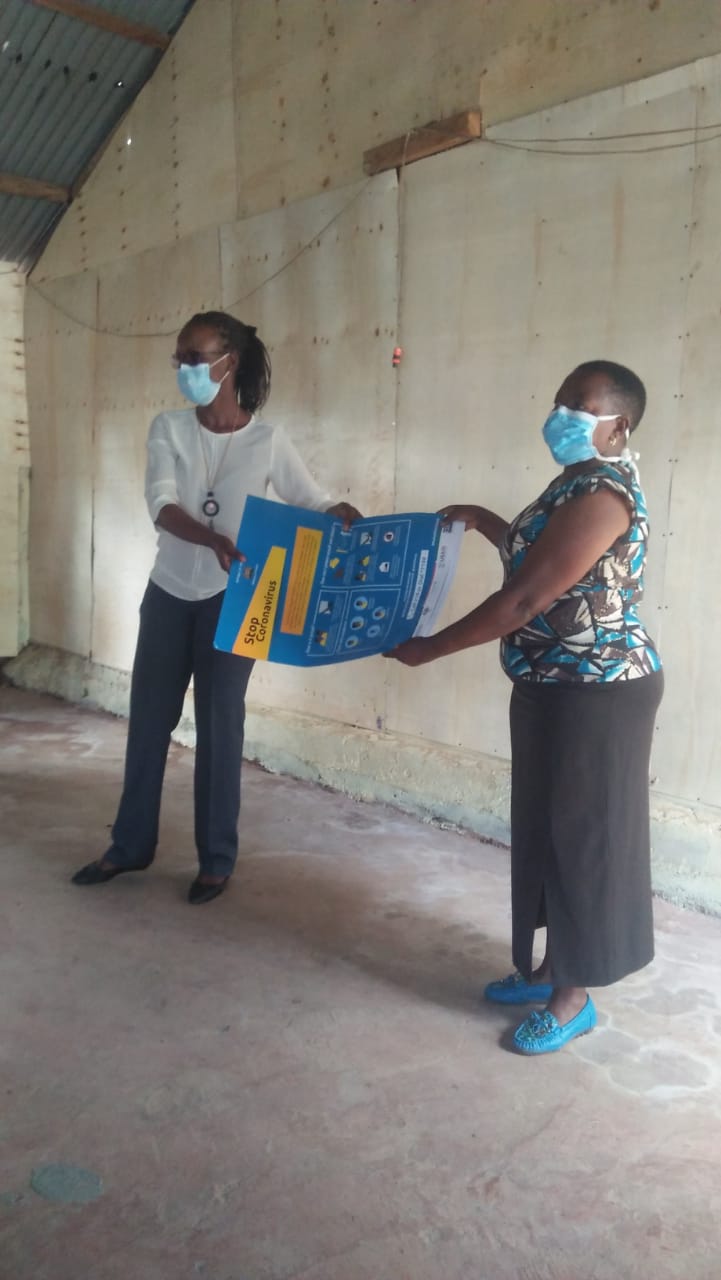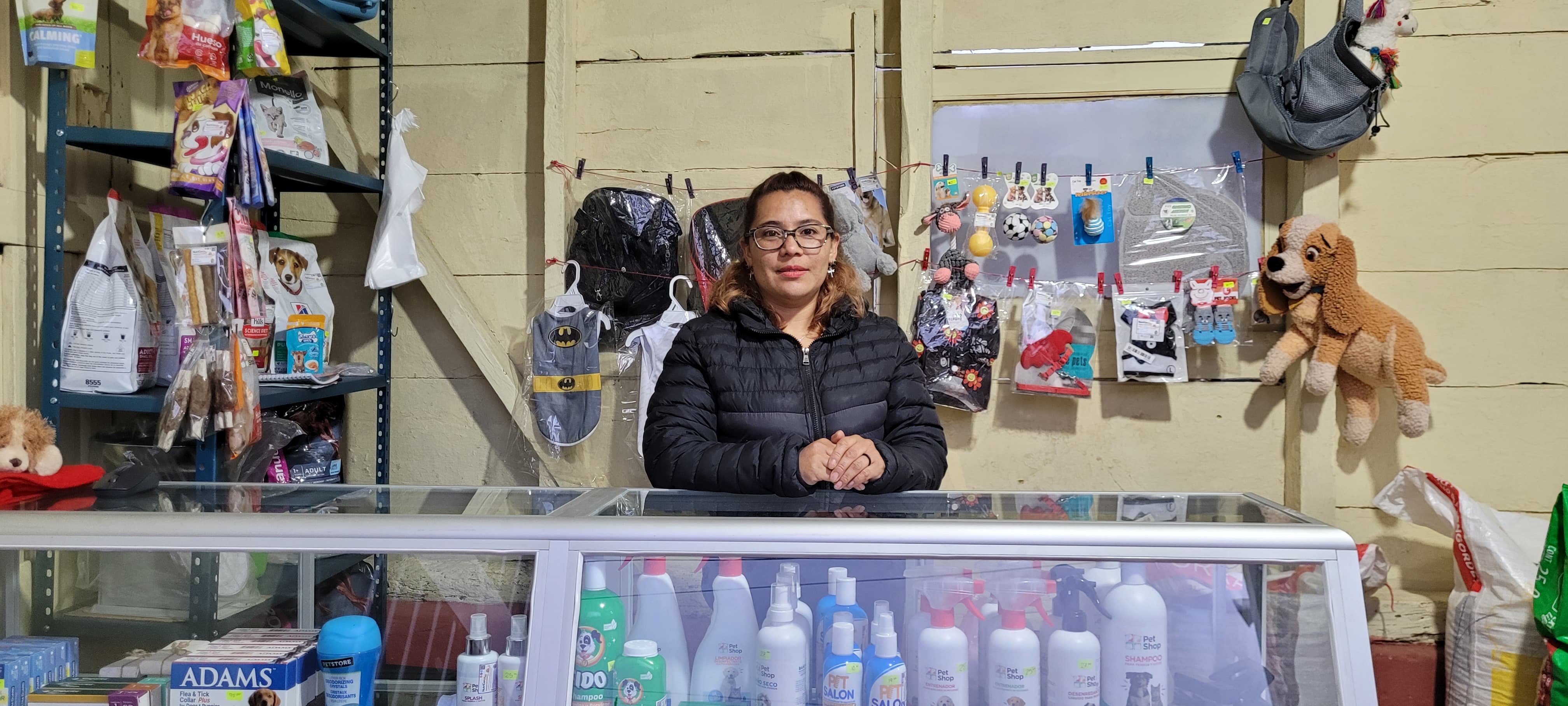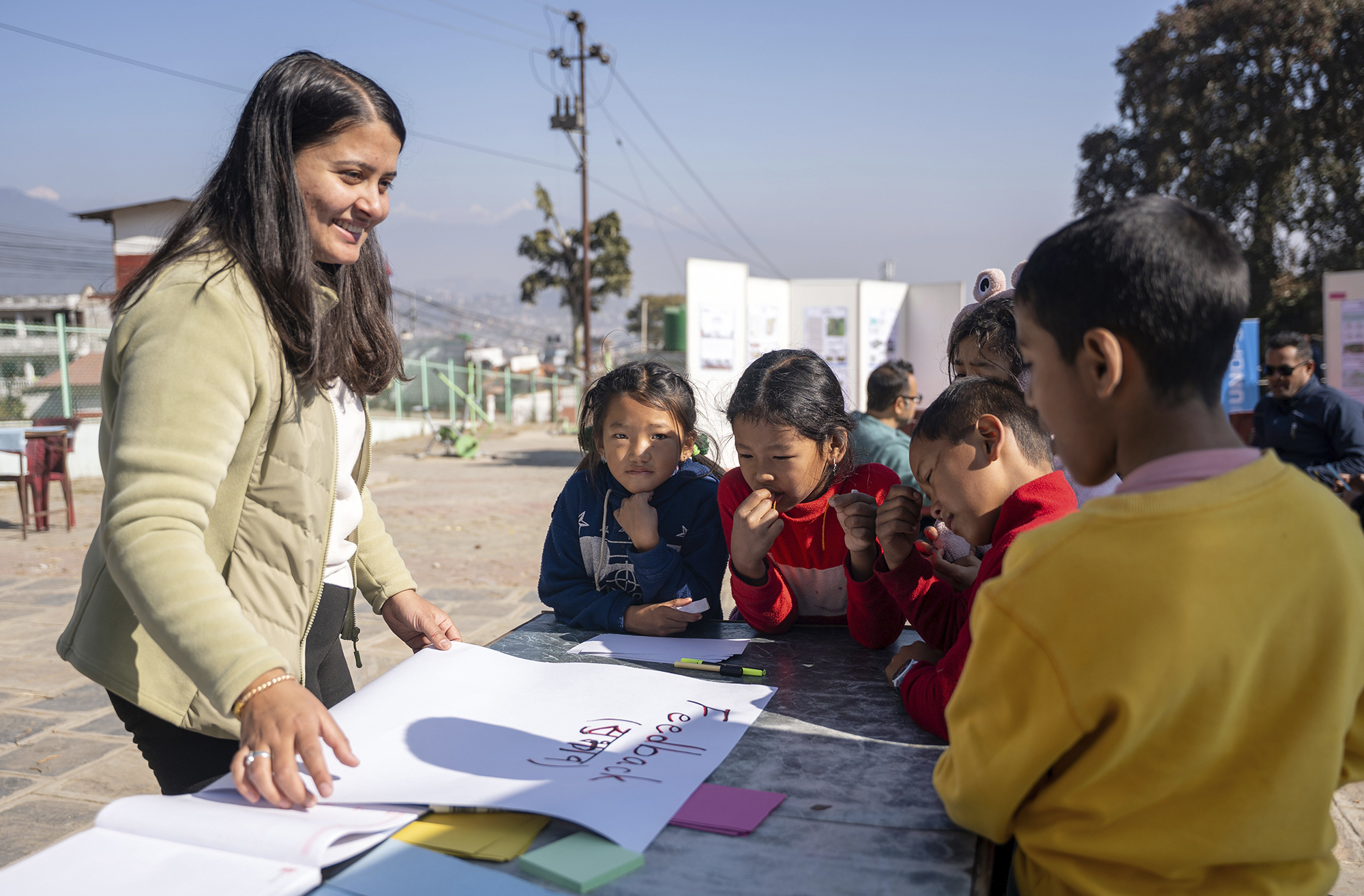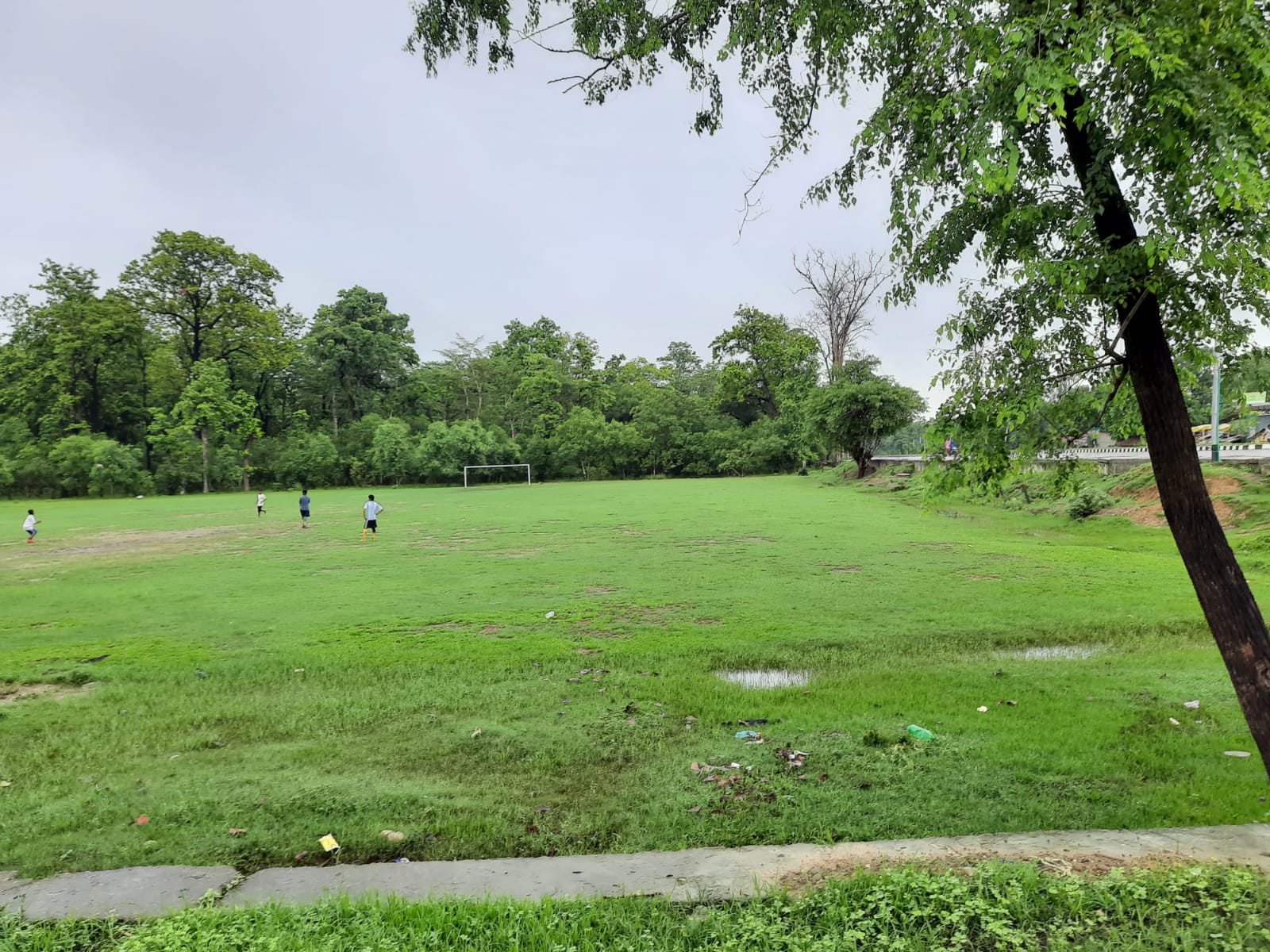The opinions expressed herein are solely those of the author(s) and do not necessarily reflect the official views of Cities Alliance or its members
Blog post authored by Irene Kinoti & Diana Wachira, Pamoja Trust*
The COVID 19 pandemic poses unique risks to people living in Kenya’s vulnerable informal settlements and to those in similar circumstances around the world. Informal urban settlements are often characterized by a lack of access to basic services, such as water and sanitation, as well as by dense populations. Settlement residents are therefore unable to strictly adhere to guidelines on handwashing and social distancing.
The members of these vulnerable communities may also rely heavily on the informal economy to meet their daily needs. This can mean that their livelihoods are affected, as informal sector economic activities are constrained or crippled by pandemic containment measures.
So far, over 7.2 million people have been infected by the novel coronavirus (SARS-CoV-2) worldwide, and of these, 3,094 are in Kenya. As the government grapples with the modalities of social protections for these vulnerable communities, women’s groups in Kenya have been stepping in to provide solutions. The significance of the role women are playing in efforts to control the spread of the virus, especially in informal settlements, cannot be overstated. It is evident that in this crisis, women’s groups are emerging as the unsung heroes, especially in informal settlements in Kenya.
Women as primary caregivers during the COVID 19 crisis
Views of women as central pillars for the promotion of well being have remained constant over the years in many communities, despite variations in social attitudes towards women. Traditional caregiving roles, sometimes defined in terms of altruism and self-sacrifice1, can also be projected toward wider cultural, economic, religious, political, and social realms—including areas such as public health. In so doing, women tend to rely on working in groups, primarily community-based organizations formed to address societal development issues. Women’s groups may pool together to share resources, ideas, and pertinent information. This approach has been evident in the ways in which women’s groups have stepped up to meet the challenges of the global pandemic, and especially the threat it poses to vulnerable people in informal settlements.
Implementing WASH initiatives
In the Mathare and Kibera informal settlements of Nairobi, women’s groups have leveraged the networks they have formed over time with Pamoja Trust through support from Cities Alliance, as well as skills they have acquired in past trainings, to undertake water, sanitation, and hygiene initiatives. One focus of these WASH initiatives has been on the manufacture of liquid soap. Women’s groups have been dispensing soap at no cost at community water points and selling it to individual households at minimal cost to enhance the practice of handwashing. In addition, some women’s groups are seeking out partnerships with non-governmental organizations to identify ways in which water tanks can be installed in their communities. Insert link to the other article
Disseminating information and creating awareness
Women’s groups have also taken up the role of information dissemination and the creation of awareness within communities about COVID 19. This outreach effort includes offering training on preventative measures to avoid spread of the virus.
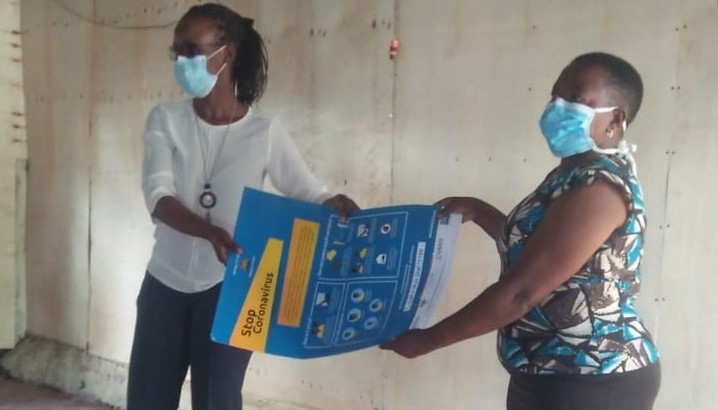
Producing and providing face masks
The same strategy has been adopted in the production of low-cost face masks. Women’s groups have utilized some of their resources by pooling together to buy fabric and other materials to produce face masks, which they later distribute within their communities, either for free or at very low costs. These initiatives have also created economic opportunities, as seen in the recent partnership between the Amani women’s group in Kibera and the Ministry of Health, in a bid to increase face mask production for the Kibera community.
Women as community health workers
Women are also serving as community health workers, including caring for the sick that are currently unable to go to medical centers. They are also collecting antiretroviral (ARV) drugs on behalf of vulnerable individuals to reduce their possibility of exposure to the virus. Often despite the struggle to sustain their own families, women continue to demonstrate strength and resilience in providing support services to other households in need and to the community at large, as part of the national effort to contain the spread of COVID 19.
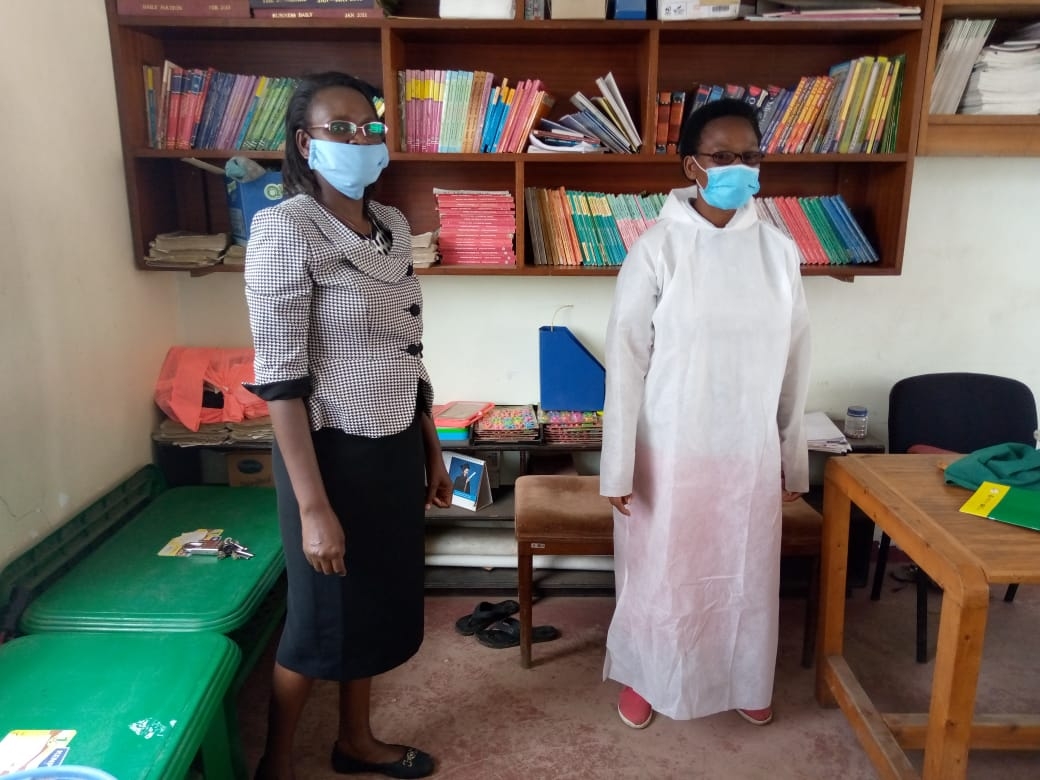
Advocacy training and tools key to rapid response on COVID 19
Women’s groups from Mathare and Kibera informal settlements in Nairobi have engaged with Pamoja Trust, through a partnership with Cities Alliance, on advocacy for security of tenure using flexible pro-poor tools such as the Social Tenure Domain Model (STDM). The partnership has provided opportunities, lessons, and experiences directly relevant to policy discussions and advocacy for recognition of STDM. Through this project, women also received training on tools such as STDM in order to engage with the government for tenure security, which has been a major cause of evictions in Kenya during the pandemic period, and the provision of basic services for the informal settlements they reside in. This training has been beneficial in enabling women’s groups to scale up and implement a crucial and timely response to the threat posed by the COVID 19 pandemic.
About the authors:
Irene Kinoti is an urban planner by profession and an assistant program officer at Pamoja Trust. She is an enthusiast of social planning and approaches that promote inclusive and adaptive cities.
Diana Wachira is an urban planner and an STDM expert with experience and expertise in precedence setting and problem solving methodologies and models for inclusive and sustainable cities.
Diana and Irene both lead Pamoja Trust in implementation of the Cities Alliance Partnership.
Bibliography
1. International Encyclopedia of the Social & Behavioral Sciences. (2001). NJ Smelser and PB Baltes, eds. Elsevier, Amsterdam and New York.
Karimi, C. (2014). The role of Women Groups in Improving Household welfare in Nkaimurunya Division Ngong District of Kajiado County (Master’s thesis, Nairobi University, Kenya).

